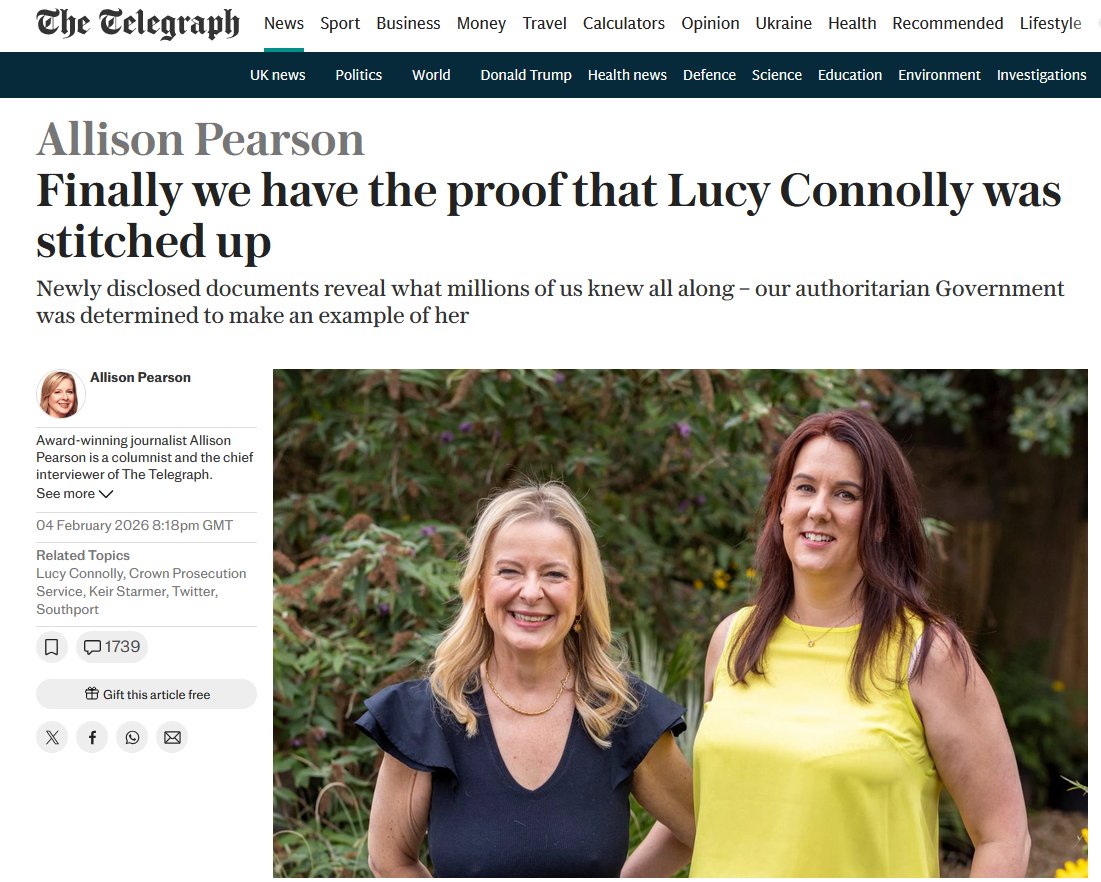Seeing as #Foucault is trending, I have some quotes: 

"If you are not like everybody else, then you are abnormal, if you are abnormal, then you are sick. These three categories, not being like everybody else, not being normal and being sick are in fact very different but have been reduced to the same thing."
"One has to distinguish between different things in the analysis of an institution. First, there is what can be called its rationality, or its aim, that is, the ends it has in view and the means it possesses for attaining those ends... Second, there is the question of results...
Obviously, the results very rarely coincide with the aim; thus the objective of the correctional prison, of imprisonment as a means of improving the individual, has not been achieved."
"When I say that I am studying the "problematization" of madness, crime, or sexuality, it's not a way of denying the reality of such phenomena...I have tried to show that it was precisely some real existent (thing) which was the target of social regulation at a given moment." 



"What defines a relationship of power is that it is a mode of action that does not act directly & immediately on others. Instead, it acts upon their actions: an action upon an action, on possible or actual future or present actions." 

"I'm thinking of an epistemological power - that is, a power to extract a knowledge from individuals and to extract a knowledge about those individuals - who are subjected to observation and already controlled by those different powers. This occurs, then, in two different ways:
In an institution like the factory, the worker's labour & the worker's knowledge about his own labour, the technical improvements - the little inventions & discoveries, the micro adaptations he's able to implement in the course of his labour - are immediately recorded, thus...
...extracted from his practice, accumulated by the power exercised over him through supervision. In this way, the worker's labour is gradually absorbed into a certain technical knowledge of production which will enable a strengthening of control...
So we see how there forms a knowledge that is extracted from the individuals themselves and derived from their own behaviour."
"We are doomed historically to history, to the patient construction of discourses about discourses, and to the task of hearing what has already been said'.
"I am merely emphasizing that the fact of "health" is a cultural fact in the broadest sense of the word, a fact that is political, economic, and social as well, a fact that is tied to a certain state of individual and collective consciousness....
Every era outlines a "normal" profile of health. Perhaps we should direct ourselves toward a system that defines, in the domain of the abnormal, the pathological, the sicknesses normally covered by society." 

"I have never said that madness does not exist, or that it is only a consequence of these institutions. That people are suffering, that people make trouble in society or in families, that is a reality. [...] It is not a critical history which has as its aim to...
demonstrate that behind this so-called knowledge there is only mythology, or perhaps nothing at all. My analysis is about the problematization of something which is dependent on our knowledge, ideas, theories, techniques, social relations & economical processes." 

"I am not interested in the academic status of what I am doing because my problem is my own transformation... This transformation of one's self by one's knowledge, one's practice is, I think, something rather close to the aesthetic experience."
"What is philosophy today (philosophical activity) if it is not the critical work of thought on itself? And in what does it consist if not in the endeavour of knowing how & to what extent it might be possible to think differently, rather than legitimating what is already known?" 

"There is always something ludicrous in philosophical discourse when it tries, from the outside, to dictate to others, to tell them where their truth is & how to find it, or when it presumes to give them naively positivistic instruction."
"The problem of Islam as a political force is an essential problem for our time and for the years to come. The first condition in approaching it with anything resembling intelligence is to not start with hatred." 

"Terrorism... has a totally opposite effect which is to make the bourgeois class even more closely attached to its ideology... Using terror for revolution: it is a totally contradictory idea". 

"Thought exists, both beyond & underneath systems & edifices of discourse. It is something that is often hidden but always drives everyday behaviours. There is always a little thought occurring even in the most stupid institutions; there is always thought even in silent habits..
Criticism consists in uncovering that thought & trying to change it: showing that things are not as obvious as people believe, making it so that what is taken for granted is no longer taken for granted. To practice criticism is to make harder those acts which are now too easy...
As soon as people begin to no longer be able to think things the way they have been thinking them, transformation becomes at the same time very urgent, very difficult and entirely possible."
"For me my books are experiences, in a sense that I would like to be as full as possible. An experience is something that one comes out of transformed. If I had to write a book to communicate what I was already thinking, I would never have the courage to begin. I only write...
a book because I don't know exactly what to think about this thing that I so much want to think about, so that the book transforms me & transforms what I think. Each book transforms what I was thinking when I finished the previous book. I am an experimenter, not a theorist." 

• • •
Missing some Tweet in this thread? You can try to
force a refresh












